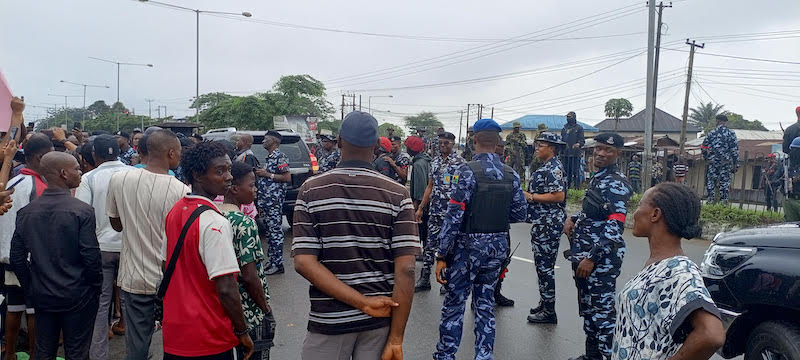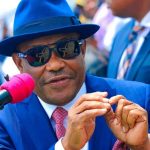After the first day of the protest, #Endbadgovernance was tagged in Nigeria, the most populous black nation. No fewer than 17 persons were confirmed dead in the demonstration that happened across major cities in the country.
In Abuja, the nation’s capital, one person was confirmed dead after the protesters subdued the police from the Maraba Nyanya area of Nasaarawa state and entered the Asokoro settlement, where most of the elites settle in the federal capital territory.
In Kano, the most populous northern state, one individual was killed after a confrontation with the police by a protester who broke into the under-construction Nigeria Communication Commission (NCC) Industrial Park in the state and looted all the properties with other shops in the metropolis. The police announced the arrest of some of the looters who were paraded by the command.
In Jigawa, two persons were reported killed by the police after the protest turned violent in the state.
Niger state recorded the highest number of casualties on the first day of the demonstration, with six persons reportedly gunned down by the police in the capital Mina. The protesters in Niger state had begun their demonstration a day before the official takeoff of the process.
Borno and Kaduna state all recorded three deaths on the first day of the protest. In Kaduna, protesters attempted to break into the government house, but they were confronted by the police situated at the entrance, which resulted in the death of the protesters.
While in Borno, the protesters trooped out to the capital city. The protest started with apprehension when a suicide bomber blew herself up a day before the protest; the protest went on to be violent when protesters began the destruction of propers and attacked security officials, which resulted in the death of three protesters.
In Yobe state, three staff at a fuel station were shot dead when at their work station; the protesters who took to the street destroyed public properties worth millions of naira.
The demonstrations, which began on a peaceful note in the cities, turned violent as the protesters chanted solidarity and anti-government songs in the state the protest.
In major cities, businesses were grounded as banks, shopping plazas, and major markets were closed for fear of the unknown.
The casualties in the federal capital territory were killed along the Kubwa Expressway, where the protesters covered the road, preventing all vehicular movements, which was against the court order that restricted the protesters to the MKO Abiola stadium in the capital.
An eyewitness in the capital city noted that the security agents who walked with the protesters explained that the protests turned violent, which triggered a confrontation with the police. The eyewitness, who called herself Ekaete, noted that she was waiting for a bus at the expressway when the violence started. He noted that the protesters scampered for safety when the incident happened.
‘’I was waiting for a bus on the expressway when the protesters in their numbers blocked the highway and harassed motorists. But as they became violent, the police fired live shots, killing the young man. Everybody took off on seeing the man fall,’’ she said.
Damilare Adenola, the Director of Mobilisation of the Take It Back Movement, said the protest would continue until President Bola Tinubu agrees to the demands of the protesters and explained that the Nigerian populace is suffering and needs urgent attention.
The demonstration has since entered the second day in the capital city of Abuja with protesters tear-gassed by the police when they arrived at their meeting point at the MKO Abiola Stadium




